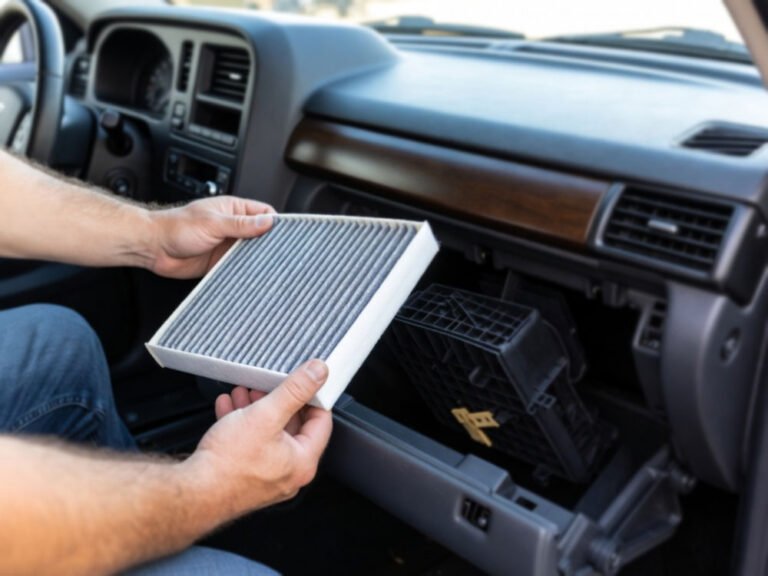Yes, car oil is flammable. It can catch fire and should be handled with caution.
Car oil is an essential component of maintaining the proper functioning of an automobile. It lubricates the engine, reduces friction, and helps dissipate heat. However, it’s important to understand the potential dangers associated with car oil. One such danger is its flammability.
Car oil, like other petroleum-based products, can ignite and burn when exposed to an open flame or high temperatures. This poses a risk during oil changes, engine repairs, or in the event of a car accident involving fire. Therefore, handling car oil should always be done with care to prevent accidents and ensure safety.

Credit: www.way.com
Understanding Car Oil
In this blog post, we will dive into the world of car oil. Car oil is a vital component of any vehicle’s engine, playing a crucial role in lubrication, cooling, and protection against wear and tear. It is important to have a good understanding of car oil, including its composition, manufacturing process, and different types available. So, let’s get started!
What Is Car Oil?
Car oil, also known as engine oil or motor oil, is a specialized lubricant formulated to be used in internal combustion engines. It is designed to reduce friction between moving parts, preventing them from wearing out quickly and ensuring smooth engine operation.
Car oil acts as a barrier, coating the engine’s internal components, such as pistons, bearings, and valves. It also helps in dissipating heat generated during combustion and keeping the engine cool.
How Is Car Oil Made?
The manufacturing process of car oil involves a careful blend of base oils and additives. These ingredients undergo various processes to create a lubricant that meets the requirements set by engine manufacturers.
Base oils, which can be derived from crude oil or produced synthetically, form the foundation of car oil. These oils are carefully selected based on their viscosity and temperature characteristics.
Additionally, a mix of performance-enhancing additives is incorporated into the base oils to improve the oil’s overall performance. These additives can include detergents, dispersants, anti-wear agents, antioxidants, and viscosity modifiers.
Different Types Of Car Oil
There are several different types of car oil available on the market, each designed to meet specific requirements and preferences. The most common types include:
| Type of Car Oil | Description |
|---|---|
| Conventional Oil | Also known as mineral oil, conventional oil is derived from crude oil and undergoes minimal refinement. It is suitable for older engines or vehicles with regular driving conditions. |
| Synthetic Oil | Synthetic oil is artificially made through chemical processes. It offers superior performance, especially in extreme temperatures, and provides better protection and lubrication compared to conventional oil. |
| High-Mileage Oil | High-mileage oil is specifically formulated for vehicles with over 75,000 miles on their engines. It contains additional additives designed to reduce oil consumption, prevent leaks, and maintain engine cleanliness. |
| Full-Synthetic Oil | Full-synthetic oil is made entirely from synthetic components. It offers the highest level of protection and performance, making it ideal for high-performance engines and extreme driving conditions. |
It’s important to consult your vehicle’s manufacturer recommendations and consider factors such as climate, driving conditions, and vehicle age before selecting the appropriate car oil.
In conclusion, car oil is a critical component in maintaining the performance and longevity of your vehicle’s engine. By understanding what car oil is, how it is made, and the different types available, you can make informed decisions when it comes to selecting the right oil for your driving needs.

Credit: www.reddit.com
Flammability Of Car Oil
Car oil is an essential component for maintaining the efficiency and performance of an engine. However, have you ever wondered if car oil is flammable? In this article, we will explore the flammability of car oil and the factors that affect its combustibility.
What Makes A Substance Flammable?
In order to understand the flammability of car oil, it is important to first understand what makes a substance flammable. Flammability is the ability of a substance to ignite and burn in the presence of oxygen. There are three main components required for a substance to burn: fuel, oxygen, and an ignition source.
The fuel is the material that burns, while oxygen acts as the oxidizer that supports combustion. Finally, an ignition source, such as a spark, heat, or flame, is necessary to initiate the burning process.
Is Car Oil Flammable?
Yes, car oil is flammable. While car oil may not catch fire readily like gasoline or other highly flammable substances, it has the potential to ignite under certain conditions. Car oil typically consists of a mixture of hydrocarbons, which are carbon-based compounds that can burn when exposed to oxygen and an ignition source.
However, it is worth noting that the flashpoint of car oil is relatively higher compared to other flammable liquids. The flashpoint is the lowest temperature at which a substance can vaporize to form an ignitable mixture with air. In the case of car oil, the flashpoint tends to be around 400 to 450 degrees Fahrenheit (204 to 232 degrees Celsius), depending on the specific type of oil.
Factors Affecting Car Oil Flammability
Several factors can affect the flammability of car oil. Understanding these factors is crucial for safely handling and storing car oil:
- The type of oil: Different types of car oil, such as conventional, synthetic, or blended oils, have varying chemical compositions that can impact their flammability.
- Viscosity: Car oil with a higher viscosity tends to be less flammable due to its thicker consistency and slower evaporation rate.
- Temperature: Car oil becomes more volatile at higher temperatures, increasing the likelihood of vaporization and potential ignition.
- Exposure to oxygen: Oxygen is necessary for combustion, so ensuring proper ventilation and preventing oil from coming into contact with open flames or sparks reduces the risk of flammability.
- Contamination: If car oil is contaminated with other flammable substances, such as gasoline or diesel, it can affect its flammability characteristics.
It is important to handle car oil with caution, following proper storage and disposal practices to minimize the risk of fire hazards. Always consult the manufacturer’s guidelines and take necessary safety precautions when dealing with car oil.
Safety Measures And Precautions
When it comes to car maintenance, one crucial aspect that often gets overlooked is the safety measures and precautions associated with car oil. It is important to understand the potential hazards involved in handling, storing, and using car oil, especially considering its flammable properties. In this section, we will discuss the necessary precautions and actions to take in case of a car oil fire, as well as highlight the significance of regular car maintenance.
Safe Handling And Storage Of Car Oil
Proper handling and storage of car oil is essential to minimize the risk of accidents and fires. Here are some important guidelines to follow:
- Always wear protective gloves and safety goggles when handling car oil.
- Ensure that the car oil container is tightly sealed to prevent leakage.
- Store car oil in a cool, dry, and well-ventilated area to avoid the build-up of flammable vapors. Avoid storing it near open flames or ignition sources.
- Keep car oil away from children and pets, as ingestion can be extremely harmful.
- Dispose of used car oil in accordance with local regulations. Never pour it down drains, sewers, or onto the ground.
Actions To Take In Case Of A Car Oil Fire
In the unfortunate event of a car oil fire, quick action is crucial to minimize damage and ensure personal safety. Take the following steps:
- Do not attempt to extinguish a car oil fire with water, as oil and water do not mix and it can cause the fire to spread.
- Use a fire extinguisher suitable for oil fires or a fire blanket to smother the flames.
- Turn off the ignition and remove any nearby ignition sources if it is safe to do so.
- Evacuate the area and contact the fire department immediately for professional assistance.
- Do not re-enter the area until it has been deemed safe by authorities.
Importance Of Regular Car Maintenance
Regular car maintenance plays a vital role in preventing accidents and potential fire hazards related to car oil. Adhering to a routine maintenance schedule ensures:
- The engine oil is regularly changed and kept at the proper level, reducing the likelihood of leaks or overheating.
- Mechanical components of the car are inspected and repaired promptly, minimizing the risk of oil-related issues and fires caused by faulty parts.
- Safety features, such as brakes and the electrical system, are functioning optimally, reducing the chances of any accidents caused by malfunctioning systems.
Remember, a well-maintained car is not only more reliable but also safer for both you and others on the road. By following the necessary safety measures, including proper handling and storage of car oil, and investing in regular car maintenance, you can ensure a safer and more enjoyable driving experience.

Credit: m.facebook.com
Conclusion
To summarize, car oil is indeed flammable and can pose a fire hazard if not handled properly. It is crucial to be cautious when working with car oil and follow safety guidelines to prevent accidents and injuries. Regular maintenance and proper disposal of used oil can help minimize the risks associated with flammable car oil.
Stay safe and protect yourself and the environment by handling car oil responsibly.









